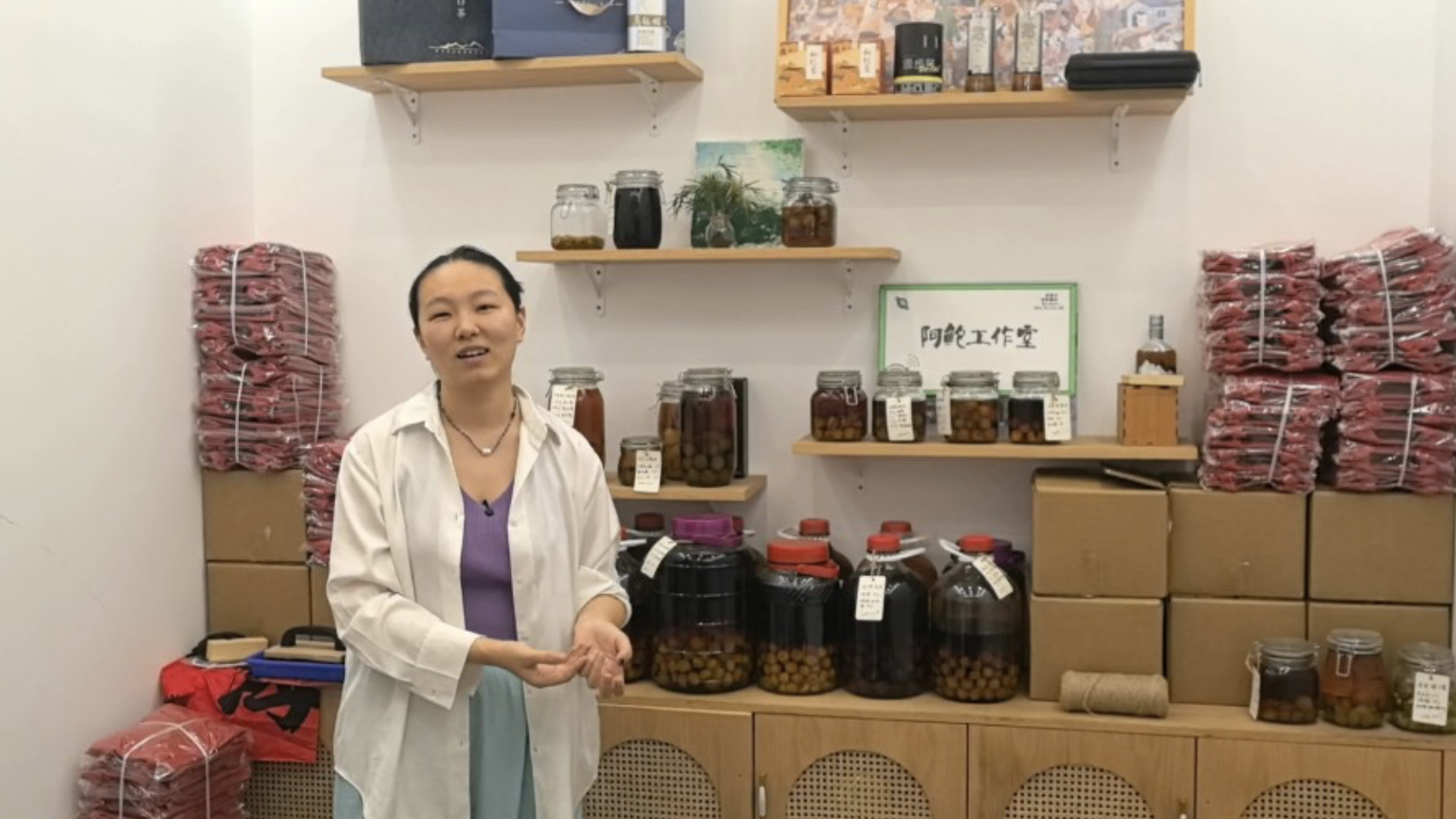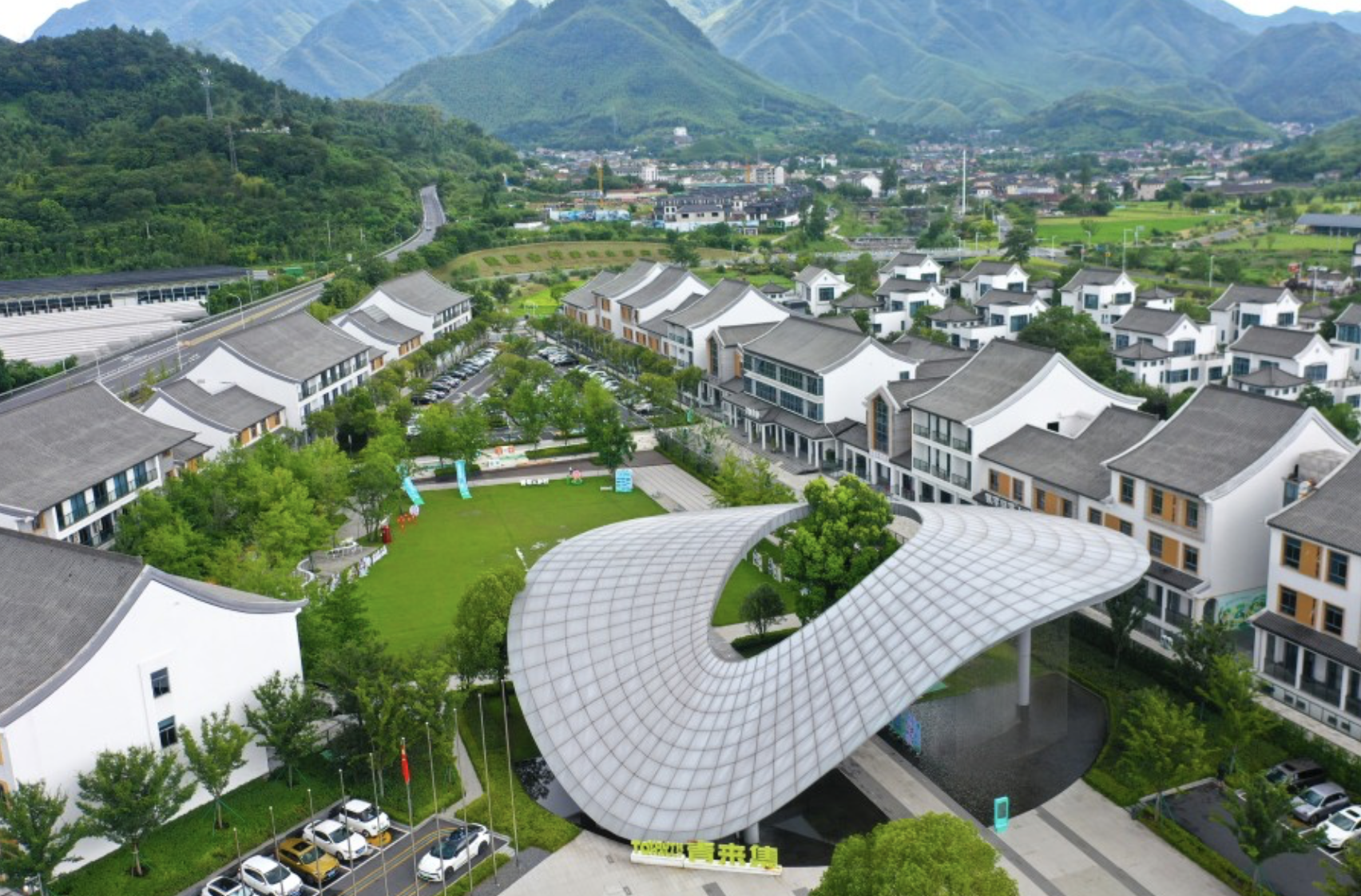In Yucun Village, Zhejiang Province, Zhuo Li and his girlfriend, both nearing 40, run The Blue House, a cafe and guesthouse with a cycling theme.
Three years ago, they left Shanghai for Yucun. Zhuo Li said the mountainous terrain is a paradise for cycling enthusiasts, but the fresh air and relaxed pace of life are what truly captivated them. "Waking up surrounded by nature every day is good for both body and mind," he said.
Bao Jingwen and Zhang Hang, close friends in their 30s, left Hangzhou for Yucun three years ago. They rent a three-story, 460-square-meter house with a garden for 10,000 CNY a year. In Hangzhou, this amount would only cover a small room.
They work as content creators and also brew plum wine. Bao shared that she escaped the confines of an office to work outdoors, which sparks her creativity.
 |
Bao Jingwen produces plum wine in Yucun as a business to supplement her income in her new home. Photo: Yush Chau/SPH Media |
Bao Jingwen produces plum wine in Yucun as a business to supplement her income in her new home. Photo: Yush Chau/SPH Media
Both Zhuo Li and Bao affirm that the quality of life in Yucun is comparable to that of a city. Daily necessities are readily available, and online shopping is convenient.
Associate Professor Forrest Zhang of the Singapore Management University calls this trend "reverse urbanization." This phenomenon is driven by city pressures such as high housing costs and job competition, and the allure of rural areas with better living environments, improved infrastructure, and new opportunities.
To attract talent, Yucun Village launched the "Global Partner Program," inviting experts in cultural tourism and creative industries. To date, they have attracted over 1,200 "new villagers," exceeding the number of original residents. Many other localities are piloting the recruitment of "rural CEOs" with starting salaries of 150,000 CNY per year, plus bonuses.
Chen Jingjing, founder of a consulting firm, said young people are returning to the countryside not to farm but to seek a new lifestyle with lower costs. As long as there is transportation, internet access, and basic amenities, a village can attract freelancers and digital nomads.
 |
An aerial view of Yucun Village, Zhejiang Province, China. Photo: CNS |
An aerial view of Yucun Village, Zhejiang Province, China. Photo: CNS
However, rural life is not always idyllic.
After nearly three years, Bao Jingwen frankly stated that this is not a vacation. She is working hard to sell homemade products like plum wine to build a self-sustaining business model, in addition to her income from social media.
"Living in the countryside is also competitive and demanding. If you only have temporary enthusiasm but don't generate income, you will struggle with pressure wherever you are," she said.
Minh Phuong (From Think China)












